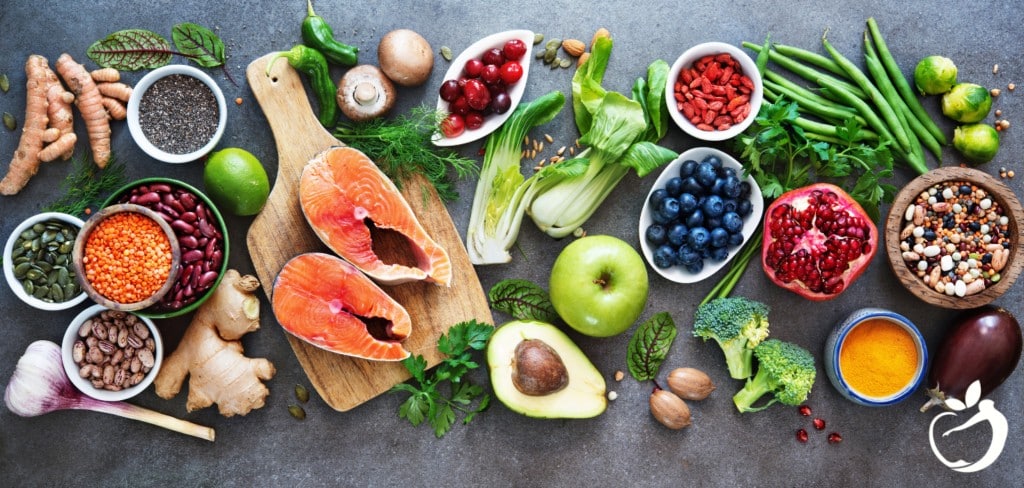Struggling to meet your teen’s nutritional needs? Early adolescence is a crucial growth phase, demanding higher calorie and nutrient intake. It’s a time of rapid growth, with significant emotional, mental, and physical changes, making proper nutrition essential for their development. Teens may face fatigue, poor concentration, and health issues without the proper nutrients. This guide helps you understand essential nutrients and provides daily dietary guidelines to support your teenager’s well-being.
The Importance of Adequate Nutrition for Teenagers
Teenagers depend on nutrition for their growth and development due to rapid growth, increased metabolic activity, and hormonal changes. A balanced diet supports cognitive development, reduces the risk of chronic diseases like heart disease, and establishes healthy eating habits early on. Essential nutrient groups for teenagers include Protein, Carbohydrates, Fats, Vitamins, and Minerals.
The Five Nutrient Groups for Teens

A variety of nutrient rich food items displayed
A teenager’s diet should consist of five key nutrients: protein for muscle building and increasing muscle mass, carbohydrates for energy, fats for brain development, vitamins for biochemical reactions, and minerals for bone density and enzymatic functions.
1. Protein
Protein is crucial for teenagers as it supports muscle development, boosts immunity, and aids in various bodily functions. Teenage girls generally need adequate protein-rich food daily, while boys require slightly more. To meet your protein needs while keeping fat intake in check, opt for lean meats like chicken, fish such as tuna and salmon, eggs, legumes like lentils and chickpeas, and low-fat dairy products. Incorporating various protein sources ensures a balanced intake of essential nutrients for overall health.
2. Carbohydrates
Carbohydrates are essential for teenagers, providing energy during high-expenditure years. They should constitute 50-60% of their total calories daily, focusing on complex sources like whole grains, including quinoa, brown rice, and white rice, for sustained energy and fibre. Options include quinoa, brown rice, fruits, vegetables, legumes, beans, and dairy products like milk for carbs and protein. Choosing whole grains over refined options ensures a healthier and consistent energy level throughout the day.
3. Fats
Teenagers need fats in moderation for brain development, hormone production, and energy. Opt for unsaturated fats in small amounts and keep total fat intake at 25-35% of daily calories. Healthy sources include oils rich in Omega-3s, such as olive and fish oil. Avocados, nuts, and seeds are also beneficial. For optimal health, avoid saturated and trans fats.
4. Vitamins
Vitamins are essential for teenagers, supporting various bodily functions. Key vitamins include Vitamin A (carrots and sweet potatoes for vision, skin, and immune system), Vitamin C (citrus fruits berries, which are good sources of vitamin C for collagen immune support), Vitamin D (fatty fish, a day of dairy products like milk and cheese for bone health), Vitamin E (nuts, seeds as antioxidants), and B Vitamins (whole grains, meat, eggs for energy, cognitive functions). Teenagers should consume colourful foods like fruits, vegetables, whole grains, lean meats, and dairy for optimal intake.
5. Minerals
Minerals are vital for teenagers’ growth, bone health, enzymatic functions, and cell oxygen transport. Key minerals include calcium, iron, zinc, and magnesium. Calcium strengthens bones and teeth; iron carries oxygen in the blood; zinc supports immunity and cell growth; and magnesium is crucial for biological reactions. Due to menstruation, teenage girls need to focus on iron intake. Ensuring a diverse diet is crucial to meeting these mineral needs during adolescence.
Daily Dietary Guidelines for Teenagers

A meal plate with balanced diet options
Teenagers aged 14-18 need a well-balanced diet with five major food groups: carbohydrates, proteins, dairy, fruits, and vegetables. A nutritious diet should focus on incorporating these essential food groups while balancing energy-dense foods with nutrient-rich, lower-calorie options for overall health and well-being.
Suggested Servings Per Food Group
Teenagers need a balanced diet that includes fruits, vegetables, grains, lean proteins, and dairy. Portion sizes vary based on activity levels and body size. Here’s a simplified daily guide:
| Food Group | Recommended Servings |
| Fruits | 2 servings |
| Vegetables | 5 – 5.5 servings |
| Grains | 7 servings |
| Lean Meat | 2.5 servings |
| Reduced Fat Dairy | 3.5 servings |
A variety of nutrient-rich foods ensures overall health and well-being.
Healthy Meal Planning
Teenagers benefit from healthy meal planning to maintain balanced nutrition, sustain energy, and develop lifelong healthy habits. Meals should include all essential nutrient groups with a variety of foods.
Sample Meal Plan for Teenagers
| Meal | Example |
| Breakfast | Whole grain toast with avocado, fruit and low fat milk |
| Lunch | Lean meat or legume sandwich, salad and fruit(avoid white bread) |
| Dinner | Lean protein, whole grains and vegetables |
| Snacks | Veggie sticks with hummus, fresh fruit |
Incorporating diverse, nutrient-rich foods encourages healthier eating habits for teenagers.
The Role of Hydration

A glass of water with lemon and ice
Hydration is an often overlooked but crucial aspect of teenage nutrition. As teens are usually active, their body requires adequate fluids, including enough water, to function optimally. While keeping the body temperature regulated, hydration aids digestion, absorption, and transport of nutrients and supports cognitive functions. Water stands out as the best source of hydration while sweetened beverages. are limited
Water Intake Recommendations
Teenagers generally need around six to eight cups of fluids daily, which may include fruit juice based on activity levels and climate. Water should be the primary source of hydration, with milk also being a good option for essential nutrients. Soft and sugary drinks should be limited to special occasions to avoid excessive sugar intake.
Health Benefits of Staying Hydrated
Staying well-hydrated offers several benefits for teenagers. It helps prevent dehydration symptoms like fatigue, dizziness, and confusion. Proper hydration enhances physical performance, aids post-workout recovery, promotes weight balance, and supports overall health. Developing a habit of regular fluid intake is essential and provides tangible benefits to teenagers.
Physical Activity and Nutrition

A person engaged in outdoor physical activity
During adolescence, nutrition and physical activity form a vital partnership. Balanced nutrition fuels high energy needs, while regular physical activity ensures calories are well utilised for growth and development. It also helps maintain a healthy body weight, preventing excess weight, and strengthens bones and muscles, enhancing the benefits of good nutrition.
Balancing Energy Intake with Exercise
Teenagers must balance energy intake with exercise to achieve optimal health and maintain a healthy weight. A well-rounded diet plan with proteins, carbohydrates, and healthy fats is essential. While active teens require more energy and nutrients, they should focus on nutritious foods for recovery, muscle building, and overall well-being.
Impact of Physical Activity on Nutrient Needs
Increased physical activity affects nutrient needs in teenagers. Exercise increases protein requirements for muscle repair, hydration for fluid replacement, and energy-dense nutrients like complex carbohydrates for sustained endurance. Vitamin and mineral needs may also increase, such as Vitamin D and Calcium for bone health and Iron for preventing iron deficiency in physically active girls. Understanding these modifications helps teens balance energy intake with exercise.
Conclusion
Teenage years are a time of change, and effectively meeting nutritional needs can set the stage for healthier adulthood. A balanced diet, hydration, meal planning, physical activity, and overcoming unhealthy eating habits form the roadmap to nutritional wellness for young people. Developing healthy eating patterns now influences future health. The goal is to make this journey enjoyable and educational for young individuals.
Frequently Asked Questions
What are the specific nutritional needs of teenage athletes?
Teenage athletes require more energy, so they need more carbohydrates and proteins. They also need to pay extra attention to hydration levels. Depending on the sport, the requirements for certain nutrients, such as iron and calcium, may also be higher.
How can vegetarian and vegan teens ensure they get enough essential nutrients?
Vegetarian and vegan diets for teens can meet their nutrient needs by including various plant-based protein sources, whole grains, fruits, vegetables, dark green leafy vegetables, and fortified foods. Supplements for specific nutrients such as B12 and omega-3 fatty acids may be recommended.
Do teenagers need to take supplements to meet their nutritional needs?
A balanced and diverse diet should generally provide all the nutrients teenagers need. However, a registered dietitian may recommend specific nutritional supplements depending on individual circumstances and dietary restrictions.
How can parents and caregivers support healthy eating habits in teens?
Parents can foster healthy eating habits in teens by setting a good example, involving them in meal planning and preparation, promoting regular family meals, and providing a home environment that supports healthy behavioural patterns related to food. Maintaining open communication and offering support is vital for teens navigating dietary choices.












